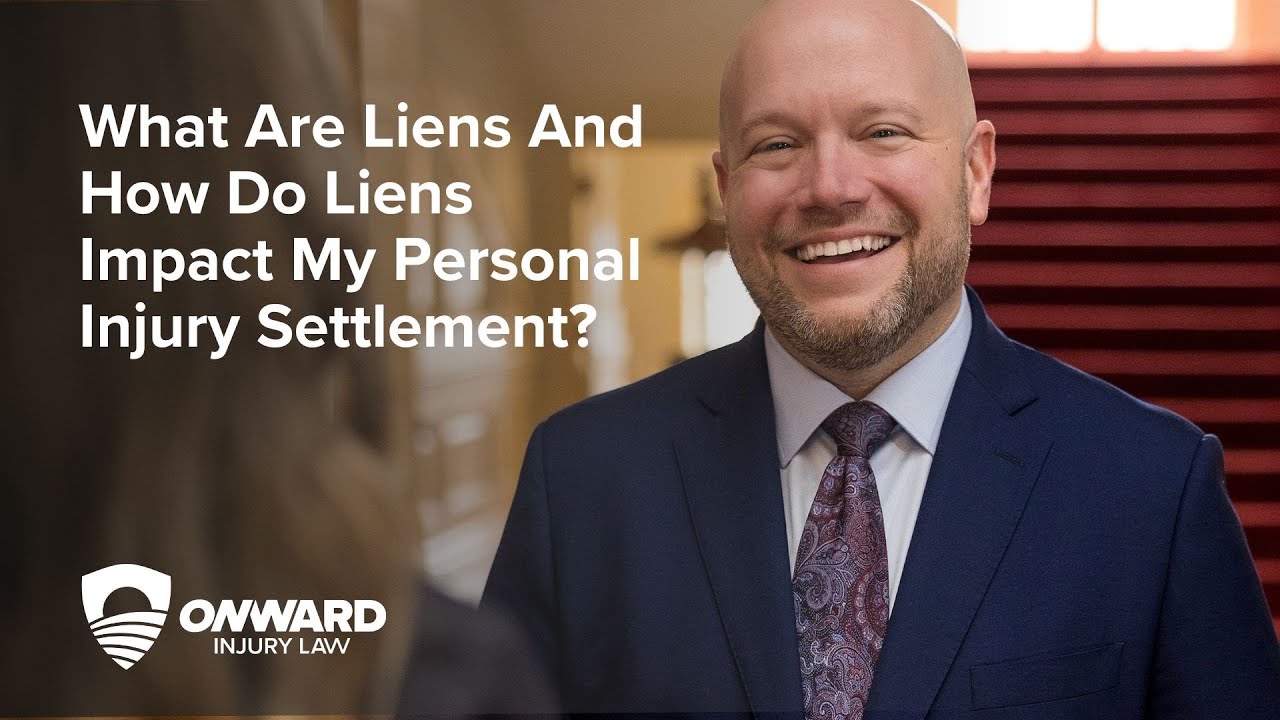How Do Liens Impact My Personal Injury Settlement?

Getting injured in an accident can be devastating.
Not only does your injury cause you pain, time lost at work, and the financial burden of medical bills, but there’s also the overall injustice of being wronged by the at-fault party.
Filing a personal injury claim or lawsuit gives you an avenue to seek compensation for your injuries – both physical and financial – but personal injury lawsuits can take time to reach a settlement. How do you pay for your medical bills and other injury expenses in the interim?
That’s where liens come into play…
If you’ve been injured in a car accident or some other incident that you believe was the fault of someone else’s negligence, contact an experienced personal injury attorney at Onward Injury Law, who can walk with you down the complicated road to compensation.
What Are Liens?
The term “lien,” in general, refers to a third party’s legal claim against a person’s assets or property that can be used to settle a debt.
In personal injury cases, liens are the right of a third party to be paid directly from personal injury settlements due to costs that they incurred from treating your injuries. There are a few different types of liens that apply in personal injury cases.
Healthcare Provider Liens
When you seek medical attention to treat your injuries after a car accident, some medical providers are willing to postpone the payments required of you, and instead place a medical lien on your settlement.
These providers could include:
- Ambulance services
- Emergency medical care
- Hospital stays
- Rehabilitation
- Physical Therapy
A medical lien is essentially a promise to pay the provider in exchange for time to settle your personal injury case.
Health Insurance Liens
In many cases, your private health insurance company will cover the cost of injury treatment after a car accident. If another insurance provider is determined to be responsible for the accident – like the auto insurance company of the at-fault driver – your health insurance provider may demand repayment for the costs of your treatment.
Since the at-fault party’s insurance company would be the one paying your settlement, your health insurance company could place a lien on your settlement and file what’s known as a “subrogation” claim to seek reimbursement directly from the settlement you’re awarded.
MedPay Liens
Some auto insurance policies provide coverage for medical bills. This is an optional coverage option in Illinois called Medical Payments Coverage, or MedPay. Typically, the policy language in this type of coverage allows the car insurance company to be repaid for the costs of treating your injuries if you receive a settlement from the other driver’s insurance company.
Medicare Liens and Medicaid Liens
Similarly to an injured person’s private health insurance company placing a lien on your settlement, the same concept applies if the injured party is a recipient of Medicare or Medicaid benefits. Since these are government benefits, Medicare and Medicaid liens are considered “super lien” status, which gives them a higher priority over other healthcare providers that might assert a lien on your settlement.
How Can a Lien Impact Your Personal Injury Settlement?
The biggest concern in any personal injury case is whether the settlement will be enough to cover all of the damages you incurred from the accident.
For example, say you end up having $150,000 in medical bills and liens as a result of your injuries. As it turns out, the at-fault driver in your accident had only $100,000 of applicable liability coverage, so you’ll still be on the hook for $50,000 in medical bills when all is said and done. That’s not a settlement you’re going to want to accept.
What can you do to ensure you get the compensation you need? There are a few ways an Illinois personal injury lawyer can help you to ensure your settlement gives you what you need.
Be Aware of All Liens
This may seem obvious, but you don’t always have a clear picture of your overall medical expenses—particularly after catastrophic injuries. You need to be fully aware of all of the potential liens that may need to be paid out of your settlement before you agree to any amount offered.
Insurance companies sometimes offer an injured person a settlement without telling them about all of the liens they have. An experienced lawyer can help you gather all of the information about your unpaid medical bills and liens and determine what an acceptable settlement will be for your case.
Negotiate Liens
Did you know medical liens in personal injury cases are negotiable? That’s right. Your injury lawyer can negotiate reductions in the liens. This means your settlement will not only cover all of your medical expenses but will also leave you enough money from the settlement to recover other damages for things like lost wages and non-economic damages.
Experienced Personal Injury Attorneys Can Make All the Difference
Dealing with injuries after an accident is a painful and often stressful time. Instead of worrying about how you’ll pay for all of your medical bills and other damages, focus on recovering and getting your life back on track.
Contact an experienced attorney who will guide you through your personal injury lawsuit. They will do the legal legwork, advocate for your rights, and work to get you the compensation you deserve.



